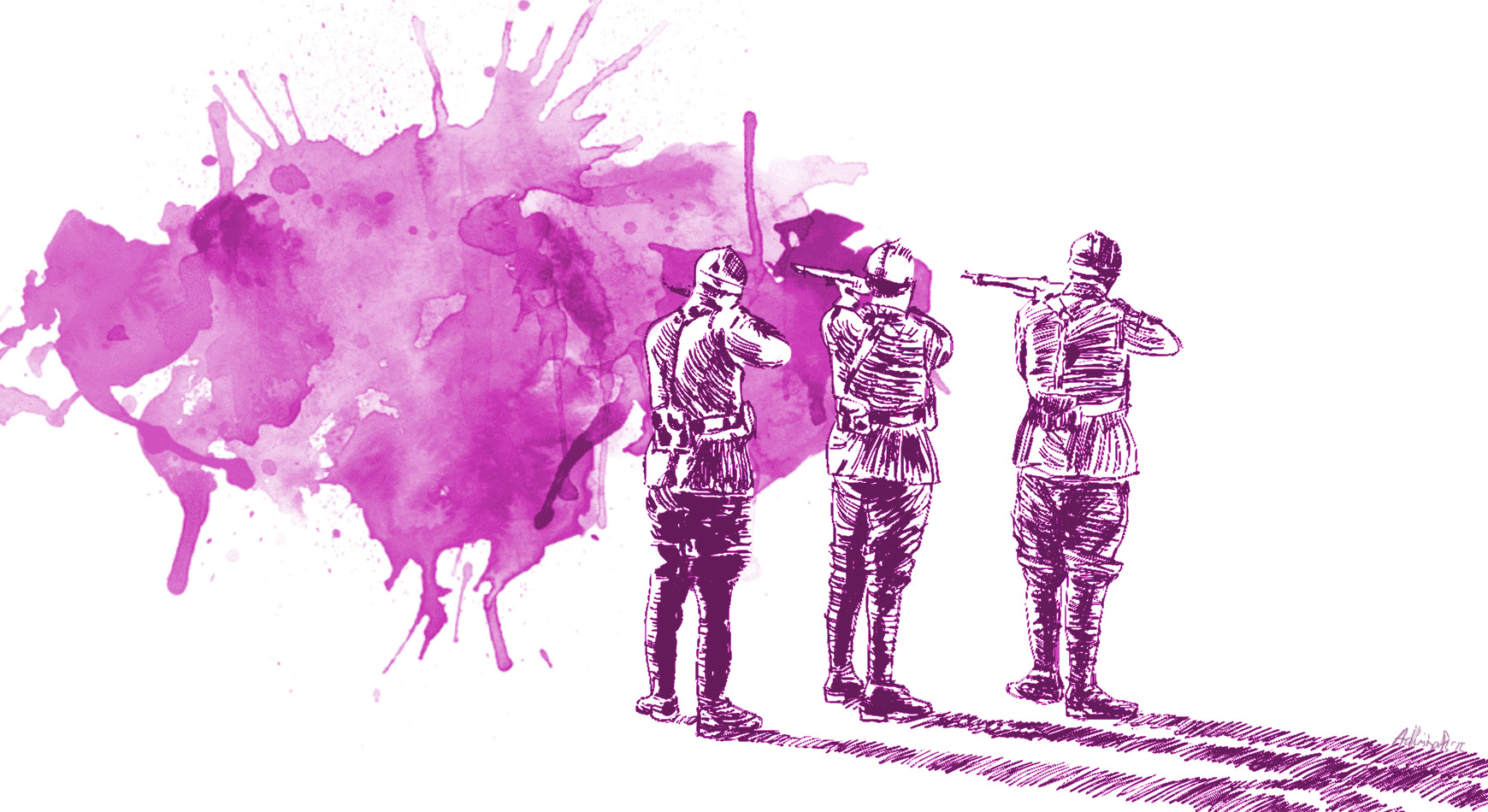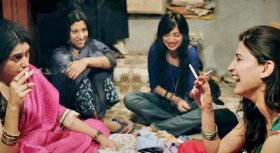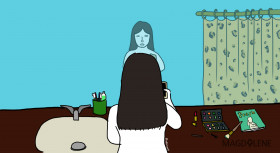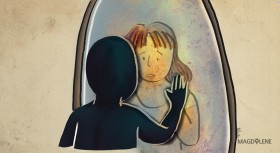Matius Arif Mirdjaja (center) with Andrew Chan (left) and Myuran Sukumaran. (Photo Courtesy of Matius Arif Mirdjaja)
The 72-hour notices have been given over the weekend to nine drug traffickers confirming they will be executed by a firing squad. Pleas on mercy have rained on Presiden Joko Widodo, one of them from Matius Arif Mirdjaja, a former robber and drug trafficker.
Sharing prison with two Australians facing the execution, Matius said his life was changed by Andrew Chan, one of the convicts.
Matius said he had been in and out of jail for cases of drugs, robbery and “many more.” He was released in 2013 and has become a priest ever since, preaching in various countries in Southeast Asia. Matius also provides service for his friends in prisons.
The following is an interview with Matius not long before he met Chan at Nusakambangan Penitentiary, Sunday morning, April 26.
How did you first meet Andrew Chan?
I first met him in 2006, when I was still an inmate in Kerobokan Prison in Bali for a drugs case. But we did not have a serious conversation at that time. We became close in 2011 when I was arrested again because of a robbery case. Andrew was the prison church leader at that time. I often questioned and mocked his faith, but Andrew never took it personally and he never got mad.
From drug trafficker to a priest, what happened to you in the prison?
It was Andrew who made me repent. In prison I was struggling with heroin addiction and Andrew tried to teach me religion as solution. But I ignored him. My view started to change when I saw that he was not talking nonsense. He walks the talk. He practices what he preaches.
For example, one day an inmate was about to be ganged up by prison gangsters. He had a problem outside prison (with one of the gangsters). We had a principle that problems outside the prison should stay outside. Don’t bring it inside. When the inmate was about to get beat up, Andrew came and helped him avoid the attack. He was always there for us and always had time for us, helping his friends.
Andrew also taught us some skills, like cooking. He’s a very good cook. He had hopes that the inmates would have a job when they got released. Just imagine, those people who are imprisoned, their skill is stealing – what are they going to do when they get out? Andrew tried to change the paradigm. The free inmates were channeled to various restaurants. The prison facilitated the initiative of Andrew and his pal, Myuran Sukumaran.
We both dealt drugs. After being in prison with him, I realized that people really could change. That was what inspired me to be who I am today.
But no matter how big the change is, they are still threatened with death sentence. What do you think?
Death sentence robs people of the right to repent. The main problem in drugs case is not about giving the trafficker the toughest sentence as possible, but how we can eradicate justice corruption. In a legal system that can’t guarantee real justice, the moral basis to impose death sentence is absent. There are many rich drug dealers who bribe their way out of death row. It seems that justice can be bought. But Andrew and Myuran did not want to go down that path.
As long as police can be bribed, as long as judges can be bought, drugs will continue to be smuggled. The government should first ensure that there’s no corruption in the justice system. That’s a better preventive measure than executing people.
What is on your mind when you find out that Andrew has received the 72-hour notice?
I’m furious because I’ve seen this as politics. It’s no longer law enforcement. How can we take pride in executing people? Especially when killing people in the name of the state? Their lives have been played by the state to cover the bigger flaws of the legal system.
Ten years ago they made a stupid mistake. But they have changed. We will only murder a priest, not a drug trafficker. We will only kill an artist (Sukumaran), a mother (Mary Jane Fiesta Veloso). We will go down in history as a country that has lost our compassion, mercy, humility and humanity.
If they are wrong, give them life sentence. Let them live. They have admitted their wrongdoings. They will be more beneficial when they are alive. These two men have created positive change for the lives of hundreds of people.
When did you last meet Andrew and Myuran?
Three weeks ago, when they were already in Nusakambangan. In Kerobokan, they could do some activities. Andrew could teach and preach, Myuran could paint. Here, they cannot. It was just recently that Myuran was allowed to paint again. In Nusakambangan the pressure is different; the emotion is different. It’s hard.
What will you tell Andrew later?
We’ll see. I’m just going to say hi. He knew I was sick at the hospital, so I couldn’t come recently. It was our friend who visited them. He kept asking about me, where I was. He really cared, even in this kind of situation. Not just for me, but for many other friends who have been helped by him. This is not easy for us.
*Read Rafki’s piece on Indonesia’s fascination with death penalty
Rafki Hidayat is a journalist for a private TV station. He loves science and aspires to be a writer and a filmmaker.









Comments